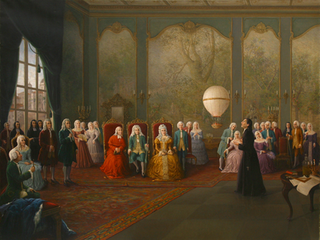The inclusion or exclusion of items from this list or length of this list is disputed. |
This is a list of kingdoms and royal dynasties, organized by geographic region.
Contents
- Africa
- Algeria
- Angola
- Benin
- Burkina Faso
- Burundi
- Cameroon
- Central African Republic
- Chad
- Congo (Brazzaville)
- Congo (Kinshasa)
- Côte d'Ivoire
- Egypt
- Eritrea
- Eswatini
- Ethiopia
- Gabon
- Ghana
- Guinea
- Guinea-Bissau
- Kenya
- Lesotho
- Libya
- Madagascar
- Malawi
- Mali
- Mauritania
- Mauritius
- Morocco
- Mozambique
- Nigeria
- Rwanda
- Senegal
- Somalia
- South Africa
- South Sudan
- Sudan
- Tanzania
- Tunisia
- Uganda
- Zambia
- Zimbabwe
- Asia
- Afghanistan
- Bahrain
- Bangladesh
- Bhutan
- Brunei
- Cambodia
- China
- India
- Indonesia
- Iran
- Iraq
- Israel
- Japan
- Jordan
- Kazakhstan
- Korea
- Kuwait
- Laos
- Lebanon
- Malaysia
- Maldives
- Mongolia
- Myanmar
- Nepal
- Oman
- Pakistan
- Philippines
- Qatar
- Saudi Arabia
- Sri Lanka
- Syria
- Tajikistan
- Thailand
- United Arab Emirates
- Uzbekistan
- Vietnam
- Yemen
- Europe
- Andorra
- Austria
- Bavaria
- Belgium
- Bohemia
- Bulgaria
- Denmark
- Finland
- France
- Greece
- Georgia
- German Empire
- Hungary
- Italy
- Liechtenstein
- Lithuania
- Monaco
- Moldova
- Netherlands
- Norway
- Luxembourg
- Poland
- Portugal
- Romania
- Russia
- Spain
- Sweden
- Turkey
- Ukraine
- United Kingdom
- Americas
- Mosquito Coast
- Antigua and Barbuda
- Bahamas
- Barbados
- Belize
- Bolivia
- Brazil
- Canada
- Grenada
- Haiti
- Jamaica
- Mexico
- Peru
- Saint Kitts and Nevis
- Saint Lucia
- Saint Vincent and the Grenadines
- United States
- Oceania
- Australia
- Hawaii
- New Zealand
- Papua New Guinea
- Solomon Islands
- Tahiti
- Tonga
- Tuvalu
- See also
- References
- External links
Note: many countries have had multiple dynasties over the course of recorded history. This is not a comprehensively exhaustive list and may require further additions or historical verification.
| Part of the Politics series |
| Monarchy |
|---|
 |
| |



